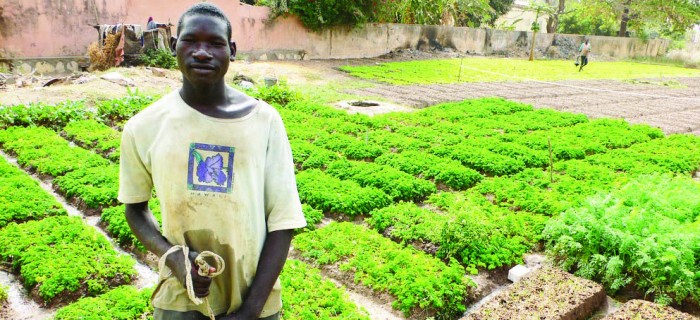Perpetuating the Eternal Food Fight
By Eric Holt-Giménez, Executive Director
In his January 10, 2011 New York Times Blog, Beyond the Eternal Food Fight, Andrew Revkin quizzes Lester Brown and Vaclav Smil, two people he considers to be food and disaster experts, asking “are the current food price spikes the edge of the cliff or just another bump in a long, climbing road?”
Predictably, Lester Brown advances his environmental catastrophe argument, while Smil argues for better governance coupled with preventing the Chinese from adopting grain-fed meat diets. Revkin pleads for a “least-regrets course forward.” All three seem to agree that developed countries shouldn’t live so high on the hog (literally). Brown recognizes that the current food and economic system is destroying the environment we depend upon to survive (something Smil does not), while Smil argues that we have more than enough food to go around—it just doesn’t get around.
Unfortunately they all uncritically support the well-worn “solutions” of genetic engineering and individual consumer choices, thus propping up the global corporate food regime’s assumptions that all problems have a technological solution, and that liberal (“free”) markets are inviolate. The recycling of these failed neoliberal solutions keeps us from addressing the root causes of hunger including poverty, unregulated markets, monopoly concentration and the inequitable distribution of food-producing resources.
Crop scientists now know that genetically engineered crops (GMOs) are not intrinsically higher yielding. For a time pest losses were reduced by inserting the gene from Baccillus thurengensis (Bt), or losses to weeds by inserting a gene that makes plants resistant to herbicides like Roundup. However, as farmers in the U.S. and elsewhere are already painfully aware, insects develop resistance to Bt and weeds build resistances to herbicides resulting in “superweeds.”
Climatologists agree that we are facing extreme and unreliable weather: drought and cold, heat and flood, pest outbreaks, etc. It is simply impossible for scientists to find a gene for every cultivar to resist every climate event. Yet the seed industry insists they can raise yields and resist climate change; they need to expand markets for seeds, fertilizers and pesticides in Africa, Asia and Latin America to continue their profitable growth…
Also in this issue of News & Views:
Stay in the loop with Food First!
Get our independent analysis, research, and other publications you care about to your inbox for free!
Sign up today!- “Oakland Food Policy Council presents Transforming the Oakland Food System: A Plan for Action to City Council” by Alethea Harper
- “Explore your Global Food System with Food First’s new travel program Food Sovereignty Tours” by Tanya Kerssen


 Help Food First to continue growing an informed, transformative, and flourishing food movement.
Help Food First to continue growing an informed, transformative, and flourishing food movement.




